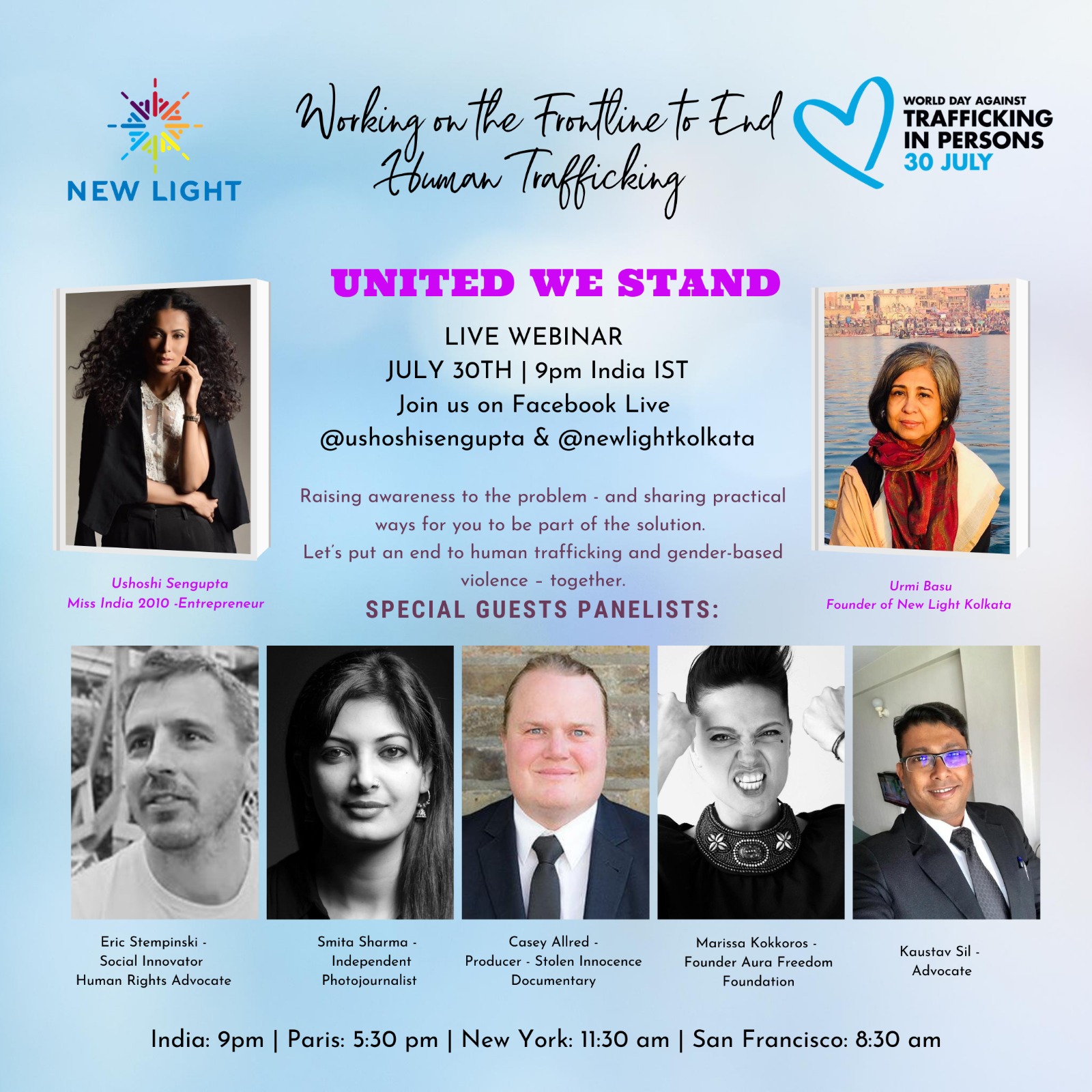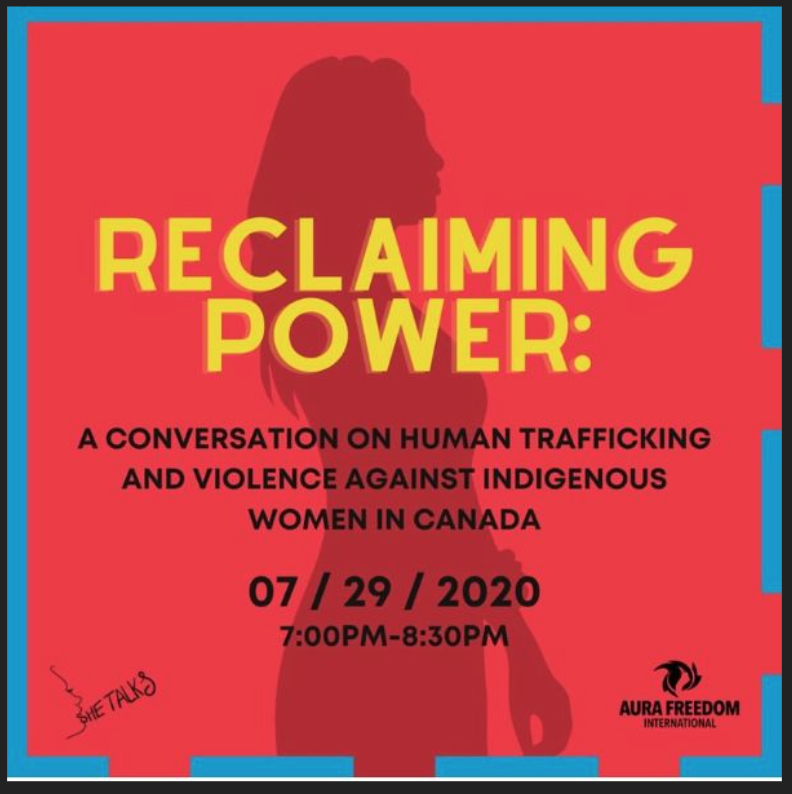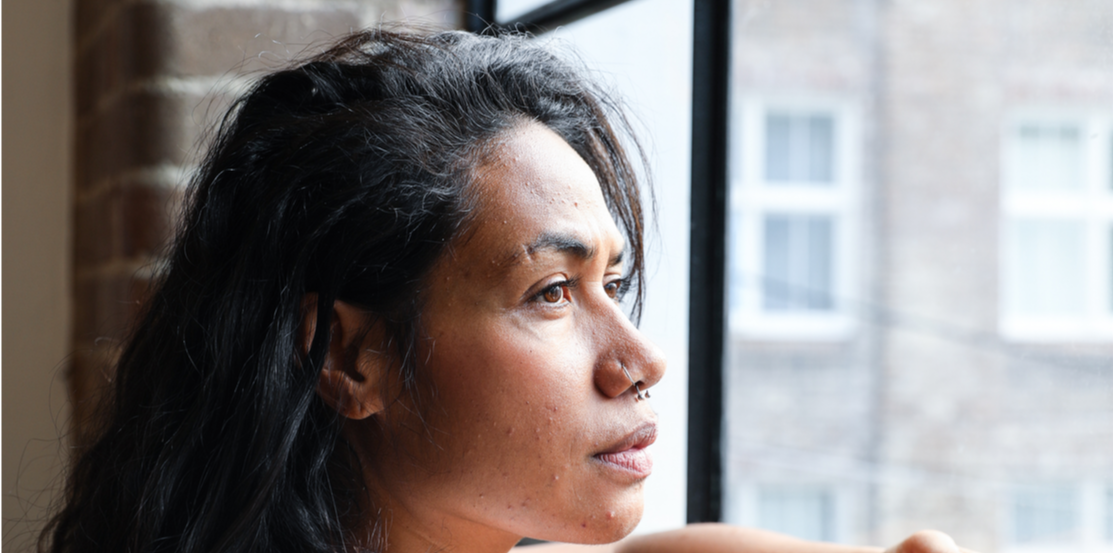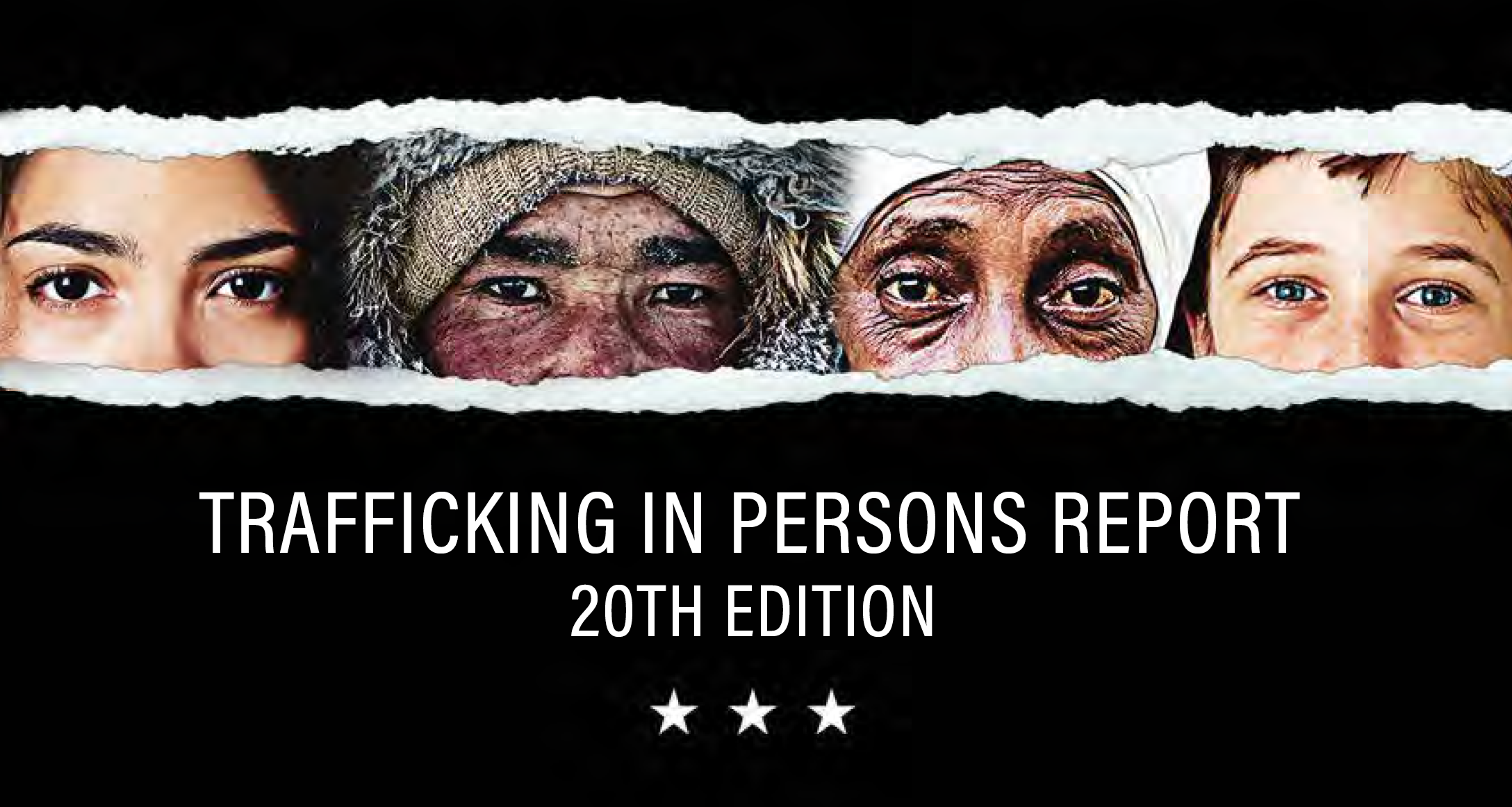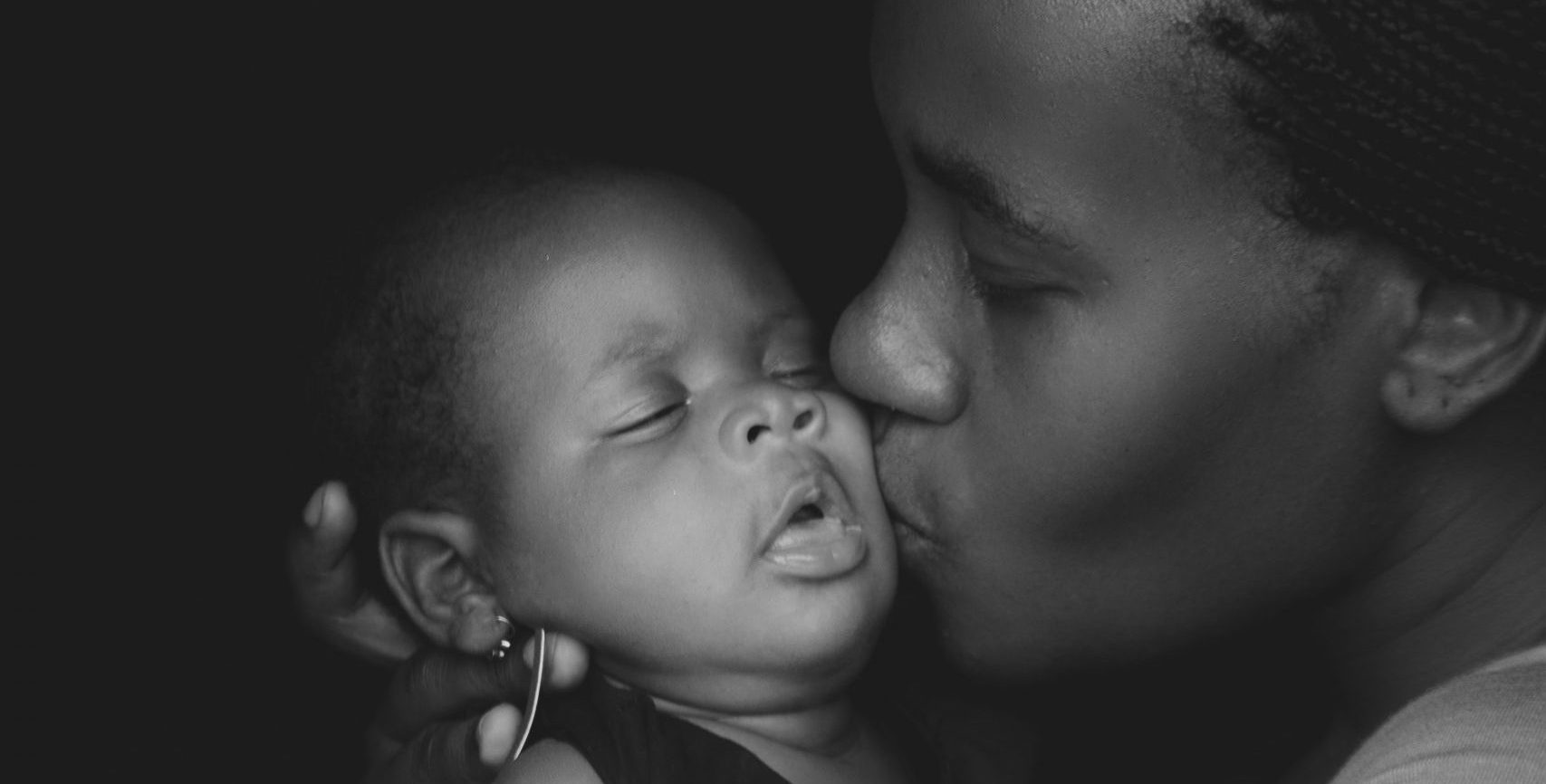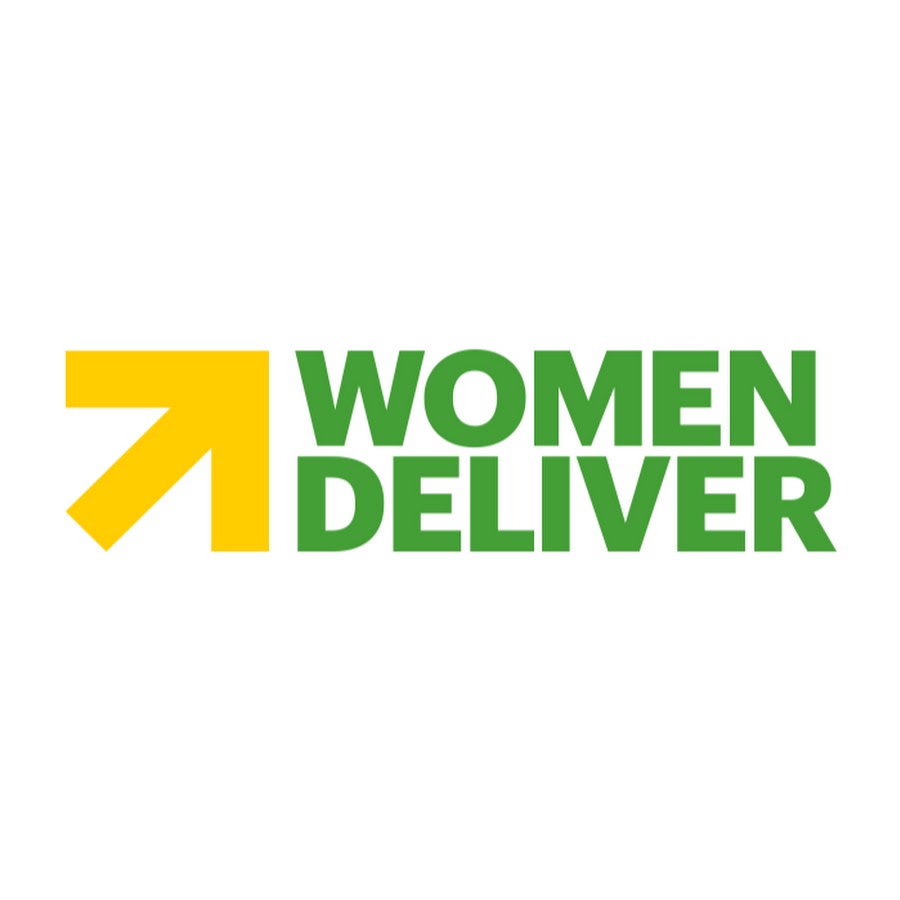United We Stand – An International Panel for World Day Against Trafficking in Persons 2020
UNITED WE STAND - And International Panel on World Day Against Trafficking in Persons 2020
‘Reclaiming Power’ – A Webinar on Human Trafficking and Violence Against Indigenous Women in Canada
Reclaiming Power - A Conversation on Human Trafficking
and Violence Against Indigenous Women in Canada
In July 2020, Aura Freedom participated in the ‘Reclaiming Power’ forum for a conversation on human trafficking and violence against Indigenous women in Canada hosted by She Leads from Ontario Tech University.
Preventing Gender-Based Violence is Essential, Too – A COVID Recovery Brief
Preventing Gender-Based Violence is Essential, too.
Preventing gender-based violence is an essential element of Canada’s post-pandemic recovery.
Download our brief and case for strengthening intersectional feminism and grassroots activism to prevent gender-based violence during COVID-19 and through Canada’s post pandemic recovery.
The 2020 Trafficking in Persons Report is out – and it misses the mark.
The 2020 Trafficking in Persons Report is Out - And it Misses the Mark
The US State Department’s TIP Report has been a useful tool for the past 20 years in global efforts to end human trafficking.
However, it is in dire need of an evolution.
The report must consider new criteria when “ranking” countries other than prosecutions and convictions. Overall, there is a huge focus on a country’s legislation and less on the systemic issues that actually contribute to human trafficking like gender inequality, systemic racism/discrimination, colonialism, homophobia, capitalism and more.
What drives people to migrate unsafely? To seek out a better life even when there are red flags? What makes a person more vulnerable to a trafficker? Why are Indigenous women particularly targeted in Canada and what narratives make it okay to ignore their disappearances? What do gender norms have to do with the sex trafficking of women and girls? Why are the most marginalized people the ones who are being trafficked the most worldwide?
These are the questions that must be analyzed and understood to truly rank a country on their efforts to end human trafficking.
In terms of country rankings (Tier 1 being the best and Tier 3 being the worst), USA has placed themselves in Tier 1 again – despite discriminatory and harmful immigration policies that are contributing to increased vulnerability of migrant workers and further silencing those who are currently being exploited. Would you seek out support as a trafficking victim if there was a risk you would be detained or have your children separated from you and held in cages?
Canada is also in Tier 1, with little mention of systemic issues in Canada that create environments of INEQUITY – which is where exploitation thrives. The Canadian section focuses more on the Canadian Criminal Code and less on human rights. Sadly, there was nothing mentioned about the Final Report of the National Inquiry into Missing and Murdered Indigenous Women and Girls, despite the report’s numerous mentions of the connections between Missing and Murdered Indigenous Women and human trafficking.
If we are to truly eradicate human trafficking, we must aim to address the root causes of exploitation and advance equity and dignity for all. It’s the only way. Aura Freedom recommends exploring a new way to rank countries that prioritizes human rights, equity and support for survivors.
Read the 2020 TIP Report here:
Gender justice and racial justice go hand in hand. There is no other way.
Gender Justice and Racial Justice Go Hand in Hand. There is No Other Way.
Renewing our Commitment to Racial Justice
Aura Freedom stands against all forms of racism and colonialism.
In our quest to eradicate gender-based violence, we work hard to highlight how systemic racism and colonialism harm Indigenous women, Black women and other women of colour and contribute to increased rates of violence and immense community trauma. As an organization, we believe that the way to change the world is to achieve true equity.
Our efforts to end gender-based violence and advance gender equality go hand-in-hand with dismantling racist and colonial structures.
There is no other way.
Black lives matter. Aura Freedom stands with the Black women on our team and Board of Directors. They matter and we will always fight for them.
Aura Freedom stands against all forms of violence and we recognize the painful impact and intergenerational trauma that years of police brutality have had on Black and Indigenous communities in Canada and worldwide. We acknowledge how extremely difficult and exhausting the past weeks, months and years have been for Black and Indigenous folks (including our own team members) and we will continue to advocate for you and educate others on the impact of systemic racism.
We hear you, we see you, we love you.
All of our advocacy, awareness and education efforts are created based on the needs and challenges of marginalized women, including Indigenous women, Black women, other women of colour, girls/ youth, women with disabilities, economically and socially marginalized women, migrant women, trans folks and gender diverse folks. Our team members have completed numerous anti-oppression trainings to ensure that we all understand, acknowledge, respect and prioritize the needs of these communities. These trainings will continue.
Every day, Aura Freedom acknowledges the existence of systemic racism and colonialism in Canada and around the world and we will continue to support and stand with everyone affected. We will continue to actively evolve our processes, communications and content to advance the ongoing movement for racial justice and gender justice worldwide. We are committed to listening, learning and showing compassion in the face of inequality and indifference.
In solidarity and with brave love in our hearts,
The Aura Freedom Team
Exploitation doesn’t stop for a pandemic.
Exploitation Doesn't Stop for a Pandemic.
May 2020: What does COVID-19 mean to women currently being trafficked, or to survivors who are seeking services?
As an organization addressing human trafficking in Canada and beyond, we knew that COVID-19 would have devastating effects on trafficked women and girls*.
*Please note the following article refers to trafficked women and children in the sex trade, not consenting sex workers. As an organization, Aura Freedom supports sex trafficking survivors and therefore this article focuses on this form of trafficking. However, we acknowledge other forms of trafficking that continue in Canada during COVID-19 such as labour trafficking, domestic servitude, forced marriage and organ trafficking.
Traffickers and exploiters don’t stop for a pandemic. Their goal is crystal clear: to make money upon the backs of vulnerable and marginalized people. Traffickers are also extremely creative when navigating new waters and adapt their businesses to flourish under any circumstances.
So, what does the COVID crisis mean for sex trafficking survivors in Toronto?
While some organizations in Toronto are witnessing an eerie silence from human trafficking survivors, others have seen no change in the demand for their services. Those of us in the human trafficking sector know that the exploitation has not stopped. In fact, the increased isolation due to COVID-19 means that survivors are even more at risk of violence and youth are more vulnerable to being recruited and groomed online.
Anecdotally, accounts from our own team and from our community partners tell us that the sex trade has most likely seen a dip in business due to the risk of COVID infection, which often means more pressure and violence from traffickers if girls and women don’t make their quotas.
It also means that it’s more difficult for traffickers to recruit and groom new people, making it even harder for those already under the trafficker’s control to get away. For clients still purchasing sex despite the pandemic, trafficked persons do not have the luxury of being able to refuse them or screen them beforehand, resulting in a risk of infection.
Many hotels have shut down, which means that those who were being exploited in hotel rooms have been moved to hidden places like trap houses and are even more isolated. This could partly explain the silence.
From the frontline, we know that emergency housing for survivors leaving exploitative situations is even harder to come by, and food insecurity is increasing. Trauma is also running high as the lockdown means survivors are more isolated than ever and sessions with support workers have changed format and frequency.
Here are some accounts from a few of our fellow members of the Toronto Counter Human Trafficking Network, who are working on the ground in Toronto and beyond to support survivors of trafficking during this extremely difficult time.
Melissa Compton – Human Trafficking Navigator at Native Child and Family Services of Toronto (Bekaadendang Project) “As an anti-human trafficking navigator during this time of COVID, I am seeing a lot of unknowns. Many of our clients are silent or not making contact. It’s very concerning. Many of our community members don’t have access to cell phones or even the Internet, so our efforts to reach out have been quite a struggle. The need for housing has been amplified and so trying to remove community members from very abusive situations has also been a struggle.
Culturally, although many knowledge-keepers have stepped up and are utilizing online platforms and doing phone appointments, most of our clients don’t have access to online forums. Moreover, those being exploited have someone who dictates what they can view, what they can participate in and when and how long they can use the phones.”
Michele Anderson – Human Trafficking Advocate at Covenant House Toronto
Covenant House has reported that the demand for their services has remained the same. Their case workers and advocates are working around the clock to support survivors (and their families) remotely and their human trafficking crisis beds are active. The demand for housing is at an all-time high and Covenant House is working with Toronto Public Health to ensure COVID-19 social distancing measures are adhered to in their facilities.
Trafficking survivors who are pregnant are experiencing anxiety and fear as many hospital protocols have changed, including how many people can support mothers during labour.
One of the most troubling developments is the bail release of offenders due to COVID-19. Numerous dangerous offenders who have been accused of human trafficking and horrific violence are now out on bail, which is causing extreme distress and anxiety for the survivors they exploited. High-level safety planning is necessary in these cases, as well as moving survivors and constantly coordinating to keep them safe.
Luis Alberto Mata – FCJ Refugee Centre
“Labour trafficking and exploitation is still happening,” says Luis. “Migrant workers are key to guaranteeing food security in Ontario and other Canadian provinces. Thousands of workers with no immigration status continue working on farms, in factories and in cleaning services in very precarious conditions. That is why our migrant worker mobile project is still doing outreach.”
According to FCJ, many migrant workers are not being provided any safety measures with regards to COVID-19 and are at risk of infection.
Bridget Perrier – First Nations Survivor of Trafficking and Co-Founder of Sex Trade 101
According to Bridget, women with addictions are having an extremely hard time. “Addictions don’t stop for a pandemic,” she says. “So, there is more dependence on traffickers and pimps who provide women with drugs and women who use drugs have fewer places to reach out to for support.”
Bridget says that traffickers will be using more violence as the women they exploit aren’t able to bring in the same amount of money due to the pandemic.
“Food security is currently an even bigger issue for survivors and gift cards for food are still a great way to support them. Access to housing was an issue before COVID-19, and now things are even worse. A survivor that I am supporting recently had no choice but to stay with her trafficker because there was just nowhere else to go.”
Bridget also brings up the important point that not all survivors are ok with staying in a hotel, as a lot of their exploitation happened in hotels. Therefore, service providers who are now using hotel rooms to house women must be aware of this and handle those cases accordingly.
Kathryn Gibbons – Sexual Assault and Violence Intervention Services of Halton
“One of the primary concerns for survivors accessing our services has been securing forms of safe housing, especially for survivors who have recently exited correctional facilities. Additionally, for survivors who are living in shelters, many of the pandemic response measures that are necessary to combat the spread of COVID, like lockdown rules that ban folks from leaving the shelter, can be incredibly re-traumatizing for survivors of human trafficking as they recreate hyper-controlled environments. Due to the economic fallout surrounding COVID-19, access to food is also a primary concern.”


A Call to Action
As an organization, Aura Freedom would like to highlight that human rights must be guaranteed at all times for all people, especially the most marginalized and disenfranchised – who are more vulnerable during emergencies like pandemics.
To understand sex trafficking in a more simplistic manner, we need to first understand it as exploitation and a form of gender-based violence. Human trafficking is indeed a crime, but more importantly, it is a human rights abuse that thrives in conditions of inequity.
Therefore, in order to address human trafficking during COVID-19, governments must address the inequalities that exist on all levels that allow gender-based violence and sexual exploitation to continue and thrive.
Women Fleeing Violence During COVID-19: The Morning Show, Global News AM640 Toronto
Women Fleeing Domestic Violence During COVID-19: The Morning Show, Global News AM640 Toronto
Catch our Executive Director’s interview today on The Morning Show AM 640 as she discusses women and children fleeing violence during the COVID-19 lockdown, how to reach out safely and what resources are available. Don’t look away.
COVID-19 is new. Gender-based violence isn’t.
COVID-19 is New. Gender-Based Violence Isn't
For women around the world who experience violence in their homes, every day is an emergency. Every day is life or death. For these women and their children, the COVID-19 crisis presents complex health risks that go beyond the disease itself.
UN Secretary-General António Guterres recently called the global surge in domestic violence due to country lockdowns “horrifying.”
He’s right.
The truth is, gender-based violence (GBV) has always been horrifying. But now, with governments mandating social distancing and self-isolation, countless women and girls are even more isolated as they are asked to remain in the very place that is the most dangerous for them: Home.
Grassroots feminist organizations knew what was coming. For some women, the lockdowns would mean increased frequency and severity of the violence they endure. For others, it would mean experiencing violence for the first time. Fear, anxiety, and economic pressure amount to increased household stress, with women bearing the brunt of that stress while trapped with abusive household members. Moreover, with schools, workplaces, restaurants, and community programs closed, women and their children have fewer places to turn to for refuge.
In China, police in Jianli County in southern Hubei province reported three times the number of domestic violence incidents in February compared to the same time last year. In France, police have reported a 30% increase in domestic violence and Spain saw an 18% increase in calls to its domestic violence emergency line in the first two weeks of lockdown. Now, we are hearing similar patterns from our community partners on the ground in Canada.
Gender-based violence is preventable
Governments could have never predicted the impact of COVID-19, but they certainly could have predicted the spike in GBV that would come with it. After all, gender-based violence is not a new phenomenon and there isn’t a country in the world that is free from it.
Before COVID-19 was even deemed a threat in Canada, I called gender-based violence a ‘national emergency’ for Canadian women in Aura Freedom’s Beijing +25 report entitled Relentless Resilience, released in early 2020. I was not being dramatic.
Many of my colleagues around the world would say the same thing about GBV in their own countries. According to UN Women, 1 in 3 women globally will experience violence in her lifetime. 137 women are killed every day by an intimate partner or family member. That’s 50,000 women killed per year, globally. Pandemic proportions, one might say.
Marginalized women are at an even higher risk of GBV, including Indigenous women, racialized women, women living with disabilities, women living in poverty, rural women, migrant women, single mothers, and others facing inequities.
So, if we already know that GBV is an urgent issue in every country and studies around the world have shown that women and girls are even more vulnerable during emergencies, then why weren’t countries prepared for these surges in domestic violence?
For governments to effectively prevent GBV during times of emergency, they must be actively preventing GBV at all times. Moreover, plans to address gender-based violence in times of emergency must precede national measures like lockdowns to avoid what is happening around the world right now.
The problem is that in many countries, women’s organizations, domestic violence shelters, and sexual assault centers are hanging by a thread at the best of times. Chronically underfunded and overworked, grassroots organizations addressing GBV rarely receive what they need, even though they are doing some of the most important work in the world. And now, they are up against even more.
Immediate gendered responses are needed, but so are long-term solutions
When responding to global health crises, it is imperative to do so with women and girls at the forefront. This doesn’t just mean considering women, who comprise 70% of the global healthcare workforce. It means bringing them to the table, listening to them, and employing them to create sensitive and powerful responses that will not only flatten curves but tend to the unique needs of women and girls during uncertain times. Partnerships and collaborations across sectors are key and funding for grassroots organizations responding to GBV must be adequate at all times – not just during emergencies.
The current global trend of increased domestic violence during COVID-19 lockdowns also points to a dire need for long–term solutions that reach beyond this pandemic. Education to tackle the root causes of gender-based violence must be prioritized by leaders. Gender inequality, misogyny, systemic racism, colonialism, ableism, homophobia, and harmful gender norms must be addressed to create an equal world that is finally free of gender-based violence.
This will take long-term, robust investments, and proactive planning. It will take courage, resilience, and patience. And although governments might not be able to ‘see’ the changes happening in real-time, it is the only way to truly end the violence for good.
In a world that has collectively mobilized to respond to COVID-19, from finding a vaccine to softening the blow to the economy, can we not mobilize in the same way for the millions of women and girls who have experienced violence at pandemic rates for centuries?
Of course, we can. All that is needed is political will.
Ending GBV will benefit everyone
When women and girls are healthy and safe, their families and communities thrive. When countries consider the rights of women and girls a national priority, those countries flourish.
- Ending GBV will bring the world increased health, wealth, peace, and climate justice.
- Ending GBV will help achieve the Sustainable Development Goals.
- Ending GBV can help get our post-COVID world back on track.
When will women and girls matter enough? Gender-based violence is a global pandemic. Act accordingly.
Written by Aura Freedom’s Executive Director Marissa Kokkoros for Women Deliver
COVID-19 is New, Gender-Based Violence isn’t – An Article for Women Deliver
COVID-19 is New, Gender-Based Violence isn't - An Article for Women Deliver
Read our Executive Director’s piece in Women Deliver’s newsletter on how COVID-19 is affecting women who experience domestic violence and how governments could have prevented it.
Thank you Women Deliver for this collaboration.




